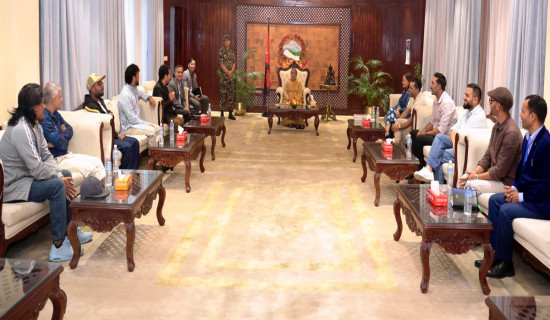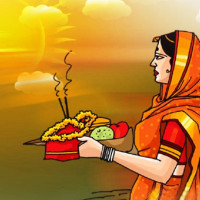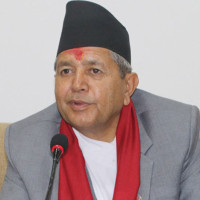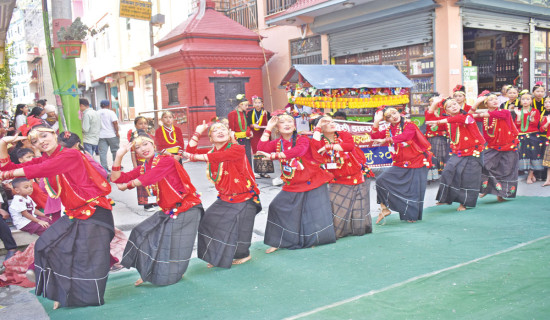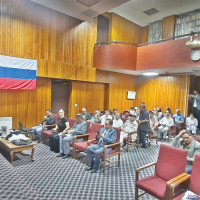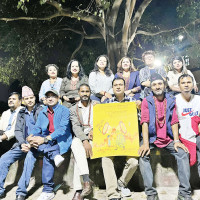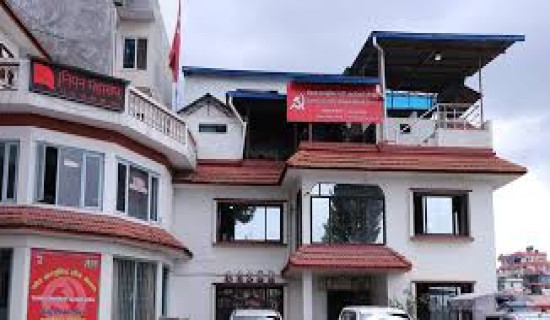- Saturday, 25 October 2025
Olke festival of Sudurpaschim
By Puskar Bhandari,Dhadeldhura, Aug. 16: The traditional festival of ‘Olke’, which falls on the first day of Bhadra in Dadeldhura and other parts of the Sudurpashchim Province, is observed with great joy and enthusiasm.
The festival is celebrated by playing local instruments like the Dhol, Damaha and other traditional musical instruments in Tiladi’s Airigaun, located in ward 7 of the district headquarters Amargadhi Municipality.
Likewise, a cultural game Chaita Dhumari is also played as part of the festival.
The festival is celebrated with the belief that eating “Bisu” leads to death, but eating Olke brings longevity.
On the day of ‘Bandhuni Barne’, it is a tradition in Airigaun to celebrate ‘Budheli’ by playing ‘Chaita Dhumari’ according to the culture of Sudurpashchim.
Similarly, on the second day of Bhadra, Budheli is also celebrated in Dumda village of Amargadhi Municipality 6.
On the day of Bhadra Sankranti, it is customary to welcome elders and neighbours by offering them tender taro leaves, Chiuri leaves, milk, and yoghurt as Sagun.
In the Sudurpashchim dialect, ‘Olke’ means a gift, offering, or token of respect. During this festival, it is a tradition to share leafy vegetables, fruits, and delicious foods with elders, and women often adorn their hands with henna.
As part of the Olke festival, married daughters are invited to their maternal home, where traditional delicacies like Sel, Puri, Dubka Kheer, and other renowned dishes of Sudurpashchim are prepared and served.
On the day of Olke, it is also customary to pluck leaves from the Bhangeri plant, grind them on a stone slab to make a paste, and apply it on the palms and toes.
The Olke festival is celebrated with the belief that it saves one from the heat and epidemics of summer.
Although the older generation is still aware of the significance and vibrancy of this age-old festival, it is losing priority among the younger generation.
Likewise, in the game of ‘Chaita Dhumari’, which is similar to but slightly different from Dauda, participants slowly sing in a circular formation, moving their feet forward and backwards, and twisting their bodies to the rhythm of the song, all while singing the tales of Lord Mahadev to the accompaniment of Dhol Drums.



